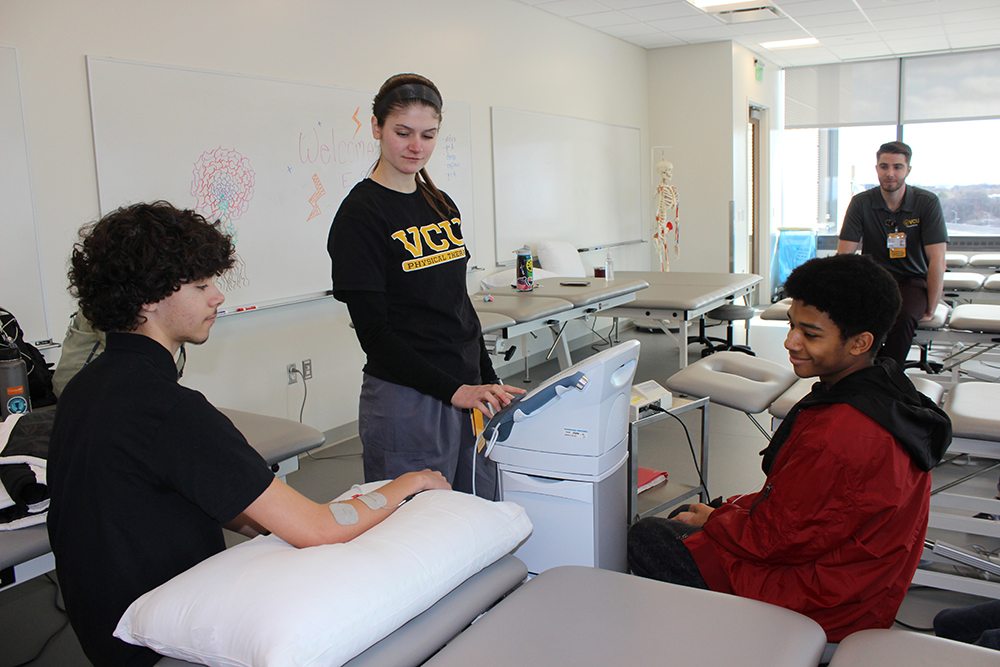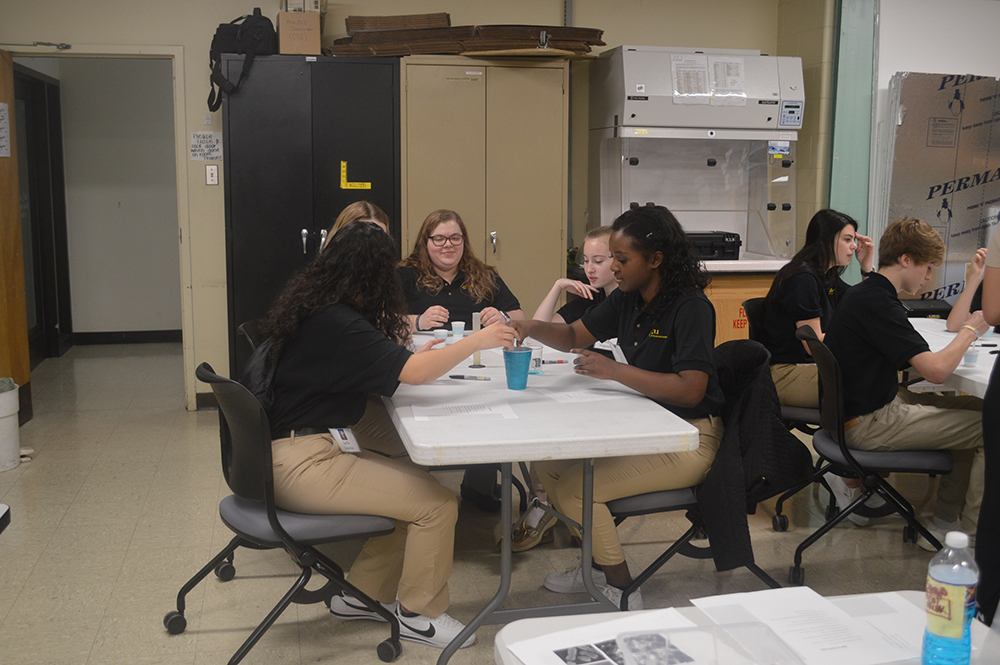Health Sciences Academy: A Longstanding Service-Learning Pipeline Program Impacts Thousands of High School and VCU Students
By Jenny Pedraza

For 14 years, high school students in Richmond City and Chesterfield County have earned college credit while exploring health careers and gaining college readiness skills. The Virginia Commonwealth University Health Sciences Academy (HSA) is an innovative program that matches area high school students with VCU students for mentoring.
HSA is a core health careers pipeline program offered by the VCU Division for Health Sciences Diversity. HSA partners with the VCU Departments of Psychology and Kinesiology and Health Sciences to offer service-learning mentoring classes and is led by Dr. Seth Leibowitz, executive director of Health Sciences Programs and Advising. More than 1,100 high school students have completed the program, and about 20 percent of them ultimately enroll at VCU for their undergraduate studies. As VCU students, HSA participants have proven to be highly successful in their coursework and consistently complete their undergraduate degrees in four years.
The program started off small. In 2008, HSA was funded by a seed grant from the then Division of Community Engagement and launched at the Cosby Health Sciences Center in Chesterfield County.
More than 650 VCU students have now participated in HSA, enrolling in the service-learning courses, HPEX 491/PSYC 492: Peer Mentoring, for two consecutive semesters. VCU students are paired with high school students from John Marshall High School and Richmond Community High School. In spring 2019, VCU students began helping high school students enrolled in the Dental Scholars pipeline program (sponsored by VCU’s School of Dentistry) with career and major exploration. VCU students are trained in effective youth mentoring by MENTOR Virginia and meet with their mentees every week for 90 minutes. VCU students working in Richmond Public Schools (RPS) learn to incorporate non-cognitive learning strategies from the book, “How Children Succeed,” by Paul Tough.
VCU students lead their mentees in structured activities around career and major decision-making, helping them consider the health field and develop the skills that will help them succeed in their college coursework. High school students also participate in interactive lectures with healthcare workers and take field trips to the VCU Monroe Park and VCU Health campuses.
“It really has been amazing to see over the years – all of the relationships formed and how much the VCU students and the high school students grow through the process,” Leibowitz said. “High school students learn how to be successful in college – everything from choosing a major and getting involved on campus to finances in college; and VCU students get trained in mentoring and are able to reinforce good practices themselves.”
Leibowitz said HSA has been able to keep functioning with no need to scale back activities due to COVID-19. VCU students have been able to easily transition to virtual formats for their service-learning classes and mentoring with high school students. In a typical semester, VCU students would travel by bus every week to their mentees’ schools. Even when in-person activities resume, Leibowitz said he may still at times utilize a virtual format because it has been an efficient and effective way for the students to connect, without the travel time.

Rebecca Doherty, ’21, a psychology major, participated in HSA last year, and was paired with two students at Cosby High School last spring. She loved the experience so much she enrolled in the service-learning course again this fall and will be paired with a RPS student this academic year.
“I always wanted to be a mentor to someone and help guide them down their path in life – that concept of ‘being someone in someone’s life,’” Doherty said. “In high school, I was really interested in health sciences, and if I had a mentor then, I wonder how it would have influenced me in my college decisions.”
Doherty plans to apply to postgraduate programs in clinical psychology, and she credits HSA with giving her experience in mentoring, working within an academic unit and with others in her field. The experience she gained working with a youth population has made her consider that track for her future career.
Sebastian Evans, a junior majoring in psychology at VCU and a student athlete in track, is also participating in HSA this semester. He just began meeting with a high school mentee from RPS, and they have been exploring the concept of “grit” and how that can affect your college – and life – success.
“So much comes down to your own persistence,” Evans said. “GPA, test scores – in college, everyone has that. But are you trustworthy? Are you honest? When things get tough, are you going to stick with it? Are you willing to keep at it, get better little bit, by little bit? That’s what I’m trying to teach my mentee, and it’s a good reminder for me too. You have to show up and put in the work. That’s what’s going to set you apart.”
HSA and other service-learning courses are supported by the VCU Center for Community Engagement and Impact. For more information on HSA, contact Leibowitz at slleibowitz@vcu.edu or visit Health Sciences Academy.
Categories Service-Learning